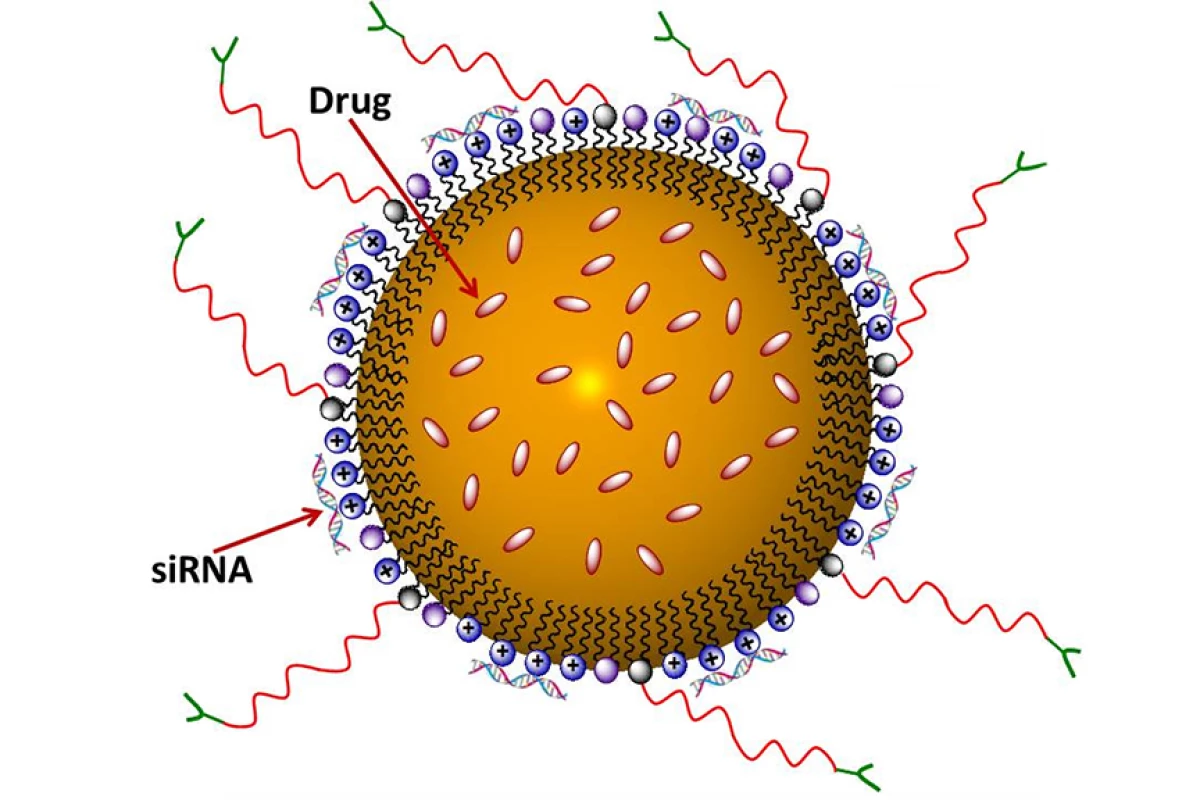According to American Cancer Society estimates, lung cancer will account for 27 percent of all US cancer deaths in 2013, making it by far the leading cause of cancer death among both men and women. Part of the problem is getting the toxic chemotherapeutic drugs used to treat the cancer into the lungs. A new drug delivery system aims to overcome this problem by allowing the drugs to be inhaled, thereby delivering the drug where it is needed while reducing the harmful effects to other organs.
The new treatment developed by researchers from Oregon State University (OSU), Rutgers University and the Cancer Institute of New Jersey uses nanoparticles as a drug carrier to transport the anticancer drugs directly into the lungs. These “nanostructured lipid nanocarriers” readily attach to cancer cells and are smaller than a speck of dust so can be easily inhaled.
As well as a payload of chemotherapeutic drugs, the nanoparticles also carry small interfering RNA (siRNA). This is a molecule that helps control and repress certain genes and makes the cancer cells more vulnerable by helping to eliminate both “pump” resistance, where the drugs are expelled from the cancer cell interior, and “non-pump” resistance, which keeps the cancer cell from dying.
“Lung cancer damage is usually not localized, which makes chemotherapy an important part of treatment,” said Oleh Taratula, an assistant professor in the OSU College of Pharmacy and co-author on the study. “However, the drugs used are toxic and can cause organ damage and severe side effects if given conventionally through intravenous administration.
Inhalation of the chemotherapeutic agents also ensures they arrive in more intact form than conventional intravenous delivery, in which the drugs tend to accumulate in the liver, kidney and spleen before they can make it to the site of the cancer. In the researcher’s study, the amount on the drug delivered to the lungs increased from 23 percent with injection, to 83 percent using the inhalation approach.
“A drug delivery system that can be inhaled is a much more efficient approach, targeting just the cancer cells as much as possible,” said Taratula. “Other chemotherapeutic approaches only tend to suppress tumors, but this system appears to eliminate it.” The researchers have applied for a patent for the inhalation technology, but say more testing will be required before moving onto human clinical trials.
The study appears in the Journal of Controlled Release and can be downloaded from OSU.
Source: Oregon State University




